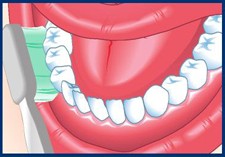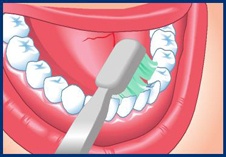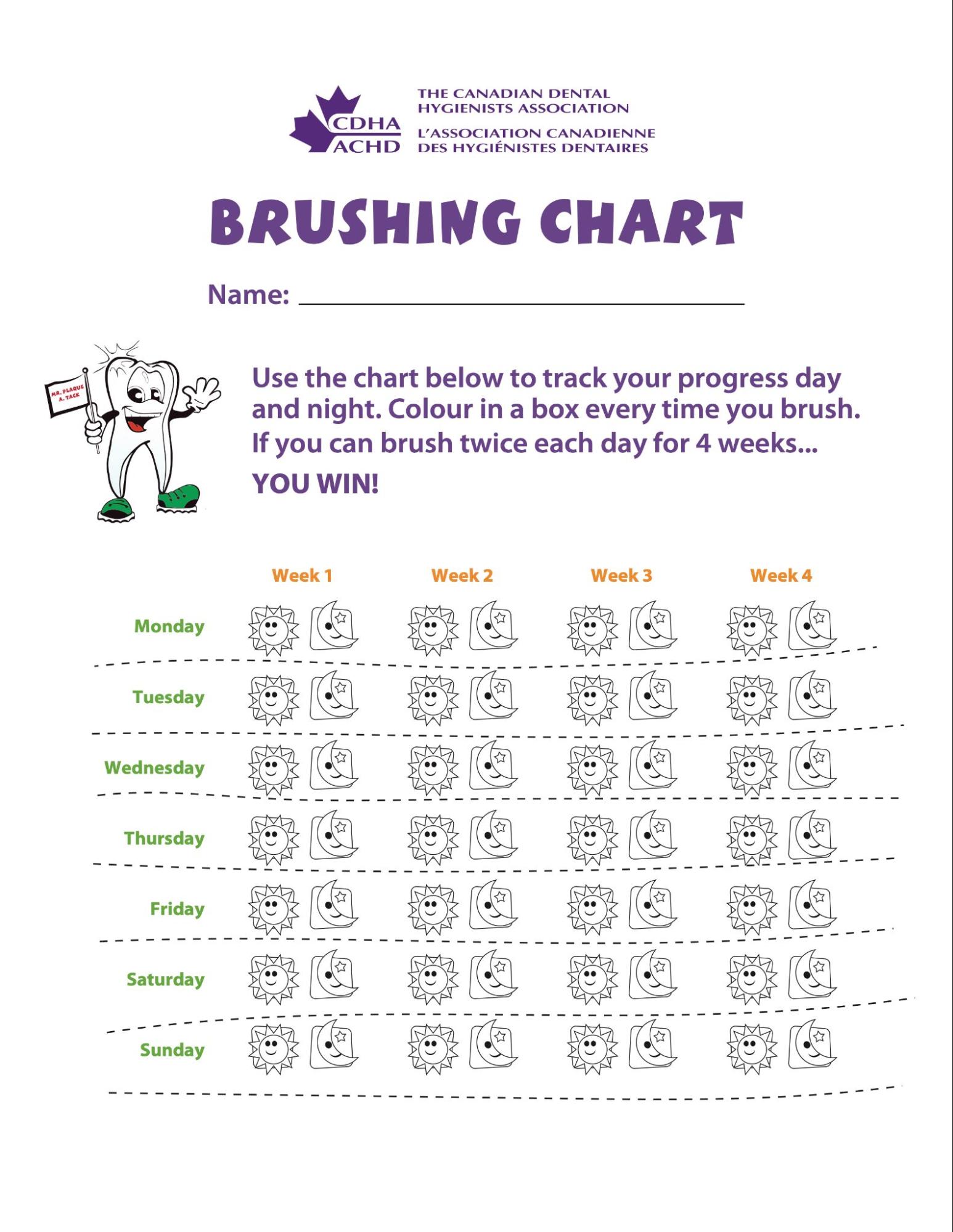fun stuff
Help! I have Jaw Pain
Help! I have Jaw Pain:
TMJ Dysfunction and how your Markham Dentists Can Help
What is a TMJ?
Your TMJ, or Temporomandibular Joint, is the joint that connects your mandible (lower jaw) to your temporal bone (skull) just in front of your ears. These joints allow your jaw to move up and down, side to side, and forward and back, and believe it or not the Canadian Dental Association considers it to be one of the most complex joints in the body! The coordinated movement of these joints, along with their muscles and ligaments in this area allow us to do things like talking, chewing, yawning and swallowing. If you are having any problems or pain and discomfort during these activities then you may have TMJ Dysfunction.
When should I get help for my TMJ?
If you experience any of the following it may be worthwhile to tell your dentist and they can help you to figure out if your TMJ is part of the problem.
- Clicking, popping or catching in your jaw
- Pain or tenderness in your jaw with opening your mouth wide, yawning, chewing, prolonged talking or biting
- Headaches and neck pain (Especially if they are along the temporal region of your head or occur in the morning – think grinding or clenching at night)
- You have the sensation of fullness or tinnitus (ringing) in your ear
What can my dentist do to help with my jaw pain?
Our dentists have extensive training about occlusion (how your teeth come together), bruxism (grinding or clenching of the teeth), and other issues that could be exacerbating the TMJ.
Injuries, overuse, joint damage, or even genetics can lead to pain or discomfort often referred to as TMJ Dysfunction. Patients living with TMJ Dysfunction can experience pain with simple daily activities like talking and eating. Our Filgiano Dentistry team knows how important listening to your needs is and doing everything we can to help you find relief.
Our dentists will thoroughly examine your teeth and jaw, and they will suggest a plan to treat your TMJ Dysfunction. Treatment may include a referral to a physiotherapist, medication for pain relief or inflammation, recommendation to wear a night guard or occlusal splint, and they will provide you with some helpful tips on things to avoid and things to do if you have TMJ pain or discomfort – we thought we would give you a sneak peek of this below!
Things to Avoid
-
Prolonged forward head posture and slouching (less texting!)
- Taking big bites (think apples)
- Chewing gum, pens, ice etc.
- Clicking your jaw on purpose
- Holding your phone between your shoulder and your ear
- Clenching your teeth together
- Biting your nails
- Talking too much or with your mouth too wide
- Resting your chin on your hand
Things to Do
-
Wear a mouthguard (if prescribed)
- Sit up tall when eating
- Try a soft diet
- Try to decrease your stress levels as this often leads to more clenching and grinding
- Rest your tongue on the roof of your mouth
- Keep your mouth closed with lips lightly touching to promote nose breathing
- Try ice or heat to help with pain
- See a physiotherapist
How can Physiotherapy help with my TMJ dysfunction or jaw pain?
The TMJ is a joint with a disc, nerves and muscles, and just like a physiotherapist can help you with your knee joint, they can also help you with the joint in your jaw. Physiotherapists can assess the way your jaw opens and closes, they can identify any areas of tenderness, and they may also assess your overall posture and neck as problems in these areas can contribute to TMJ Dysfunction. Physiotherapy treatment for your TMJ may include mobilizations or manual therapy, acupuncture, soft tissue release, a home exercise program, and more. Check out our friends at The Physio Spot in Markham to learn more about how a physiotherapist can help.
Book with us today
It will always be our primary goal to ensure the safety and comfort of our patients and of our staff. If you have any questions, please feel free to call our Office Manager Jill at the office at 905-294-6444 and she will be happy to talk with you.
How Often Do You Really Need To Go To The Dentist?
How often do you really need to go to the dentist?
You know that reminder phone call you get from the dentist? Maybe it’s an email or a text nowadays, and you might wonder, “Am I seeing the dentist too much? Wasn’t I just there?” So, how often do you really need to go to the dentist?
First, regular checkups are the best way to maintain your oral health and catch any potential problems early.
Dr. Tom always says “small problems are easy problems, big problems are big headaches.”
Our Markham Family Dentists recommends scheduling regular visits to the dentist every 4-6 months. However, it may be more frequent if you’re at higher risk of developing dental complications or developing tartar at a faster rate.
Why is going to the dentist important?
We all try our best to brush twice per day and floss daily to maintain our oral health. However, sometimes problems like cavities and gum disease aren’t visible or even noticeable. It’s not until we have pain that we take action. Seemingly without warning we need emergency dental services potentially driving up our costs.
Our dentists and hygienists undergo intensive training to check for problems you might miss. We inform, describe and help you make a decision so you can treat it sooner rather than later (thus avoiding multiple visits).
How often should you go to the dentist for cleaning?
If you went to your dentist or hygienist for an annual dental cleaning in the last 6 months, give yourself a pat on the back. It may not be your favourite appointment, but regular cleaning visits will reduce your chance of cavities and gum disease by significantly reducing the amount of plaque in your mouth.
Your dentist and hygienist will come up with an appropriate treatment plan to meet your needs, but most often they will recommend you visit your dentist regularly every 3-6 months.
We’re also happy to accommodate your insurance plans to get the best results. We’ll give you options and explain the process to optimize your plan and your dental health.
How long do dental cleanings last?
Typically, your dental cleaning will last around 1 hour. During this time the dentist or hygienist will clean your teeth. Depending on your situation, you may need a dental exam from the dentist, who may sometimes want an x-ray for a full evaluation of your dental health.
Why should some people go to the dentist more often?
Some people need to go to the dentist more than twice a year, but who? If you fall into one of the categories below, you may be at higher risk of developing dental complications and your dentist may recommend more regular check-ups and cleanings.
- Pregnant women
- Smokers
- Diabetics
- If you suffer from a dry mouth
- Poor oral hygiene
- Gum disease
- History of cavities
- Long-term dental or orthodontic treatments
- You are experiencing pain and/or discomfort
- You have a weak immune response or are undergoing cancer treatment
Other times when you should go to the dentist
We are happy to see you at your regular scheduled check-ups, and we’re always here to help sooner if you notice something about your mouth or teeth that doesn’t seem quite right. If you have any of the following or are unsure if you should come in, give us a call!
- Pain
- Abnormal bumps
- Change in colour of your tongue, teeth, or mouth
- Change in sensation in your mouth
- Gums bleeding more
- An abnormal smell coming from your teeth or mouth
- Trouble chewing
How can you go to the dentist less often?
Now that you know how often you need to visit the dentist, you may be asking yourself how can I go to the dentist less often?
What it really comes down to is good and simple oral hygiene. If you do an excellent job at home – brushing twice a day, flossing daily and keeping your gums healthy, your dentist may recommend extending the gap between visits intervals.
Check out our blog on Brushing Your Child’s Teeth – What You Need to Know for some tips on how to care for your kids oral hygiene (as well as your own).
Visiting the dentist is a preventative measure for improving your overall health, and if you keep up with your regularly scheduled visits, it can make things easier for you in the long run. Remember to follow the advice of your dentist and hygienist and book the next dental follow up appointment as per their expert opinion.
If it has been longer than 6 months, then it’s probably time to return that call, email, or text that they sent you, right!?
Book with us today
Our Markham dental office remains open and we continue to do more than the recommended measures to keep you safe.
It will always be our primary goal to ensure the safety and comfort of our patients and of our staff. If you have any questions, please feel free to call our Office Manager Jill at the office at 905-294-6444 and she will be happy to talk with you.
Brushing Your Child’s Teeth – What You Need to Know
Brushing Your Child’s Teeth
Life as a kid is busy enough! Between school, family time, sports, and playing it leaves little time for them to brush teeth. Brushing their teeth is an important life skill that every child needs to learn for that great kid smile that lasts beyond their teens and into adulthood. Helping them get into the habit of brushing twice a day for two minutes is one of the most important things you can do for their dental health.
Now we know this is no easy feat as a parent or caregiver so check out this video on how to teach your child to brush their teeth, and our tips below so that you can get started!
Brushing basics for cleaning your 2 year old’s teeth
Our Markham Family Dentists at Filgiano Dentistry recommend that you start brushing your child’s teeth as soon as they first pop out.
Baby teeth will generally appear between the ages of 6 months and 2½ years. These teeth help your child to chew food properly, develop healthy speech patterns, and hold space for your permanent teeth.
Step 1: How much toothpaste?
For children under the age of 3 use a child sized toothbrush and a small amount of fluoride toothpaste (the size of a grain of rice) to clean the tooth and gums. For 3-6 year olds use a pea sized amount!
Step 2: How to brush
Brush at a 45 degree angle to your child’s teeth. Put the bristles at the place where your gums and teeth meet. Use short tooth wide strokes across the teeth.
Parents usually find it is easiest to brush their little ones teeth by having them lying down or standing behind them with their head tilted back.


Step 3: All the teeth (and in between)
Clean every surface of every tooth. This means you must brush the outer surfaces, inner surfaces, and chewing surfaces. Use floss to clean between all teeth that are touching
Step 4: Slow and steady wins the race
Slow down and make it fun! Brushing should take 2 minutes, twice daily.
How can I make brushing more fun?
Remember life as a kid is busy, so how can we make brushing more fun?
- Go shopping – Allow your child to pick out their own toothbrush and fluoride toothpaste.
- Have 2 minutes of fun – Crank their favourite song while you supervise or brush their teeth for them.
- Make up a story where your child helps to fight the bad guys – like sticky plaque!
- Watch a youtube video to change up your families brushing routine, like this one
- Create a reward sticker chart like the one you see here from the Canadian Dental Hygienists Association.
Children’s tooth brushing chart

When can children brush their own teeth?
Parents and caregivers, we know this question is top of mind for you, when will they be able to brush their own teeth, ya know, all by themselves? Most children aren’t able to effectively brush their own teeth before age 6-9 years old.
Your child is likely ready to independently brush their teeth when:
- they have the ability to spit toothpaste into the sink
- enough responsibility to brush their teeth in the morning and at night
- have enough dexterity to brush their teeth independently
Another way to think about it: If your child can tie their shoe laces, it takes about the same amount of dexterity to brush your teeth.
Our dentists recommend that parents and caregivers supervise independent brushing until they can do all those things well. They also recommend you finish up by taking a turn at their teeth yourself to make sure that all the inner, outer and chewing surfaces have all been cleaned.
When should I bring my child in for their first dental visit?
We recommend bringing your child in for their first visit anywhere between their first and third birthday. This allows us to see if the teeth cleaning routine you are using at home is working, and it gives us a chance to identify any small problems early! Of course, if you have any question or concerns, we’ll be happy to have a look at any age just Book an appointment with your favourite Markham Dentist, Dr. Tom or Dr. Gerry.
The Markham Dentists You Like
Tiina and Connie Retire
In December, Tiina and Connie told us the sad (for us) news that they would be retiring at the end of the year. These wonderful ladies have been a vital part of our office for an amazingly long time. Connie has been with us for 17 years and Tiina for 31! Dr. Gerry can remember a time when he and Tiina comprised half of the office stafff.
To thank Tiina and Connie for all they have done for Filgiano Dentistrry and to celebrate this new stage in their lives, we all went out for lunch at the School Fine Dining restauarant. There was much reminiscing with Tiina and some astonishment from Connie who couldn’t believe she had been with our practice that long. There was a lot of laughter, presents and hugs as we sent them off with wishes for many happy years ahead.
2018 Markham Festival of Lights
We all had a great time at the Markham Festival of Lights. It was a cold night so Dr Gerry and Dr. Tom encouraged everyone to take their best shot on net because no one feels cold when they’re playing hockey. All those who took a shot got a free toothbrush and a chance to win an Auston Matthews Jersey. We had enthusiastic participants and some very excited winners!







